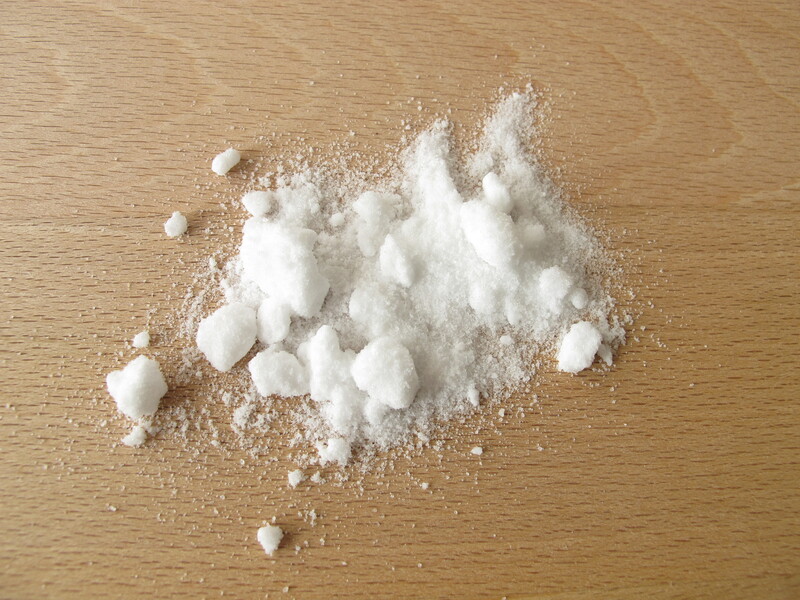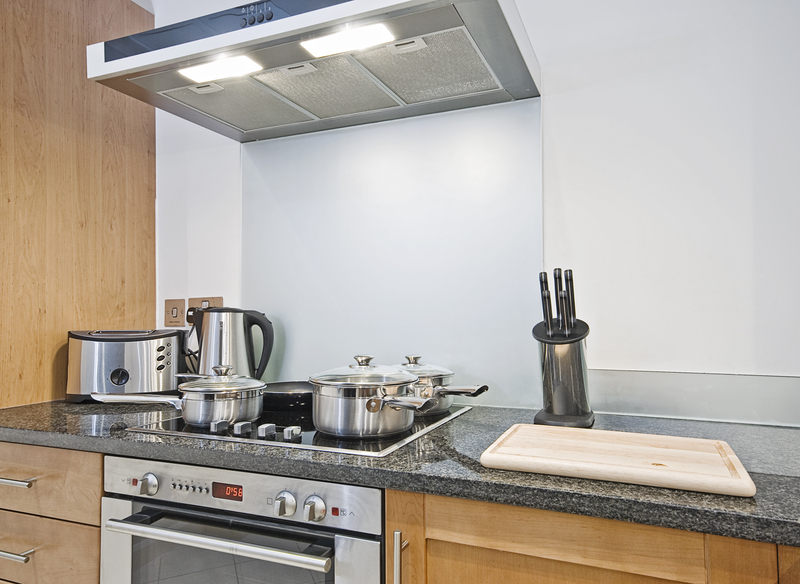Combat Unpleasant Odors: Ways to Remove Damp Smell
Posted on 05/09/2025
Combat Unpleasant Odors: Ways to Remove Damp Smell
A damp smell can ruin the comfort and freshness of any home. This musty odor not only makes spaces less inviting but can also signal deeper issues such as excess moisture and potential mold growth. Whether it's your basement, bathroom, car, or wardrobe, damp odors are a nuisance that shouldn't be ignored. Luckily, there are effective methods to eliminate musty smells and refresh your living environment. In this comprehensive guide, we'll explore a variety of ways to remove damp odors and prevent their return.
Understanding the Source of Damp Smell
Before tackling the problem, it's essential to understand why your home is plagued with that characteristic musty scent. Dampness is often caused by one or a combination of the following:
- Water leaks in plumbing or roofing
- Poor ventilation in enclosed spaces
- Flooding or spills that haven't dried properly
- High indoor humidity levels
- Mold and mildew growth on surfaces
Failure to address the root cause means that even if you combat the smell temporarily, it will likely return. That's why identifying and treating sources of dampness should be your first step.

Effective Ways to Remove Damp Odors
1. Improve Ventilation
Fresh air is one of the simplest solutions for eliminating musty odors. Proper ventilation helps remove trapped humidity and stale air. Here are some tips:
- Open windows and doors daily allow for cross-ventilation.
- Install exhaust fans in bathrooms and kitchens to draw out humid air.
- Use vent covers and clean air ducts regularly.
- Consider mechanical ventilation in areas with persistent dampness.
2. Use Dehumidifiers
Excess moisture feeds the bacteria and fungi responsible for the damp odor. By lowering humidity, you'll make your space unfavorable for both musty smells and mold growth. Dehumidifiers come in various sizes for different rooms and are especially useful in:
- Basements
- Laundry rooms
- Bathrooms
- Storage areas
Tip: Keep indoor humidity below 60% for best results.
3. Identify & Repair Water Leaks
Leaky pipes, roofs, or windows are top culprits when it comes to causes of musty damp odor. Inspect your home for any signs of water damage:
- Stains on ceilings or walls
- Pooled water under sinks or appliances
- Dripping taps or pipes
Once you've identified a leak, repair it immediately. It's often the only permanent way to stop damp smell at its source.
4. Deep Cleaning & Disinfecting Surfaces
A thorough cleaning regimen can significantly fight off persistent damp odors. Here's how:
- Scrub bathroom surfaces with anti-mildew cleaners.
- Wash and air-dry fabrics such as curtains, carpets, and bed linen regularly.
- Sanitize walls and hard surfaces with a vinegar-water solution - vinegar is naturally deodorizing.
- Steam clean carpets and upholstered furniture, which often trap moisture and smell.
5. Use Natural Odor Absorbers
Certain household substances are famous for their ability to absorb damp odors. Place these in problem areas:
- Baking soda: Sprinkle on carpets or store in open bowls to absorb smells.
- Activated charcoal: Place in breathable bags for continuous moisture and odor removal.
- White vinegar: Open containers of vinegar can neutralize bad air over time.
- Coffee grounds: These are surprisingly effective at masking and absorbing odors.
6. Address Mold and Mildew Directly
Where there's a persistent musty smell, mold or mildew is typically at the root. Ignoring them can cause health hazards. Deal with them as follows:
- Spot treatment: Use commercial mold removers or a mix of bleach and water (1 part bleach to 10 parts water) on hard surfaces.
- Scrub all affected areas and dispose of cleaning materials after use.
- Consider replacing drywall, ceiling tiles, or flooring that's heavily infested.
Note: If the infestation is extensive, seek professional mold remediation.
7. Wash and Dry Laundry Completely
Failure to fully dry clothes and towels is a prime cause of source of damp smell in homes and wardrobes. To avoid this:
- Dry laundry immediately after washing.
- Don't leave damp clothes sitting in the washer.
- Use a dehumidifier or open windows in laundry areas.
- Store only completely dry fabrics in closets and drawers.
8. Improve Storage Solutions
Enclosed spaces can trap humidity, so it's important to store belongings in a way that reduces moisture:
- Use breathable bins or bags instead of airtight plastic where possible.
- Add silica gel packets or moisture absorbers to closets, boxes, and wardrobes.
- Provide air gaps and avoid cramming items tightly together.
9. Refresh with Essential Oils and Natural Fragrances
After you've removed the underlying damp smell, you can lightly scent indoor air with natural options:
- Diffusing essential oils like tea tree, eucalyptus, or lavender can mask any lingering odors and discourage mold.
- Simmer citrus peels or herbs on the stove for a fresh home fragrance.
- Place cotton balls doused in essential oil in corners or drawers.
Remember, these solutions only mask and won't eliminate the real cause of musty smells.
10. Clean Air Conditioning and Heating Systems
HVAC systems can circulate musty air if not maintained. Regular maintenance is crucial for odor control:
- Change air filters every 1-3 months.
- Have ducts inspected and cleaned professionally when needed.
- Ensure drip pans in AC units are not retaining water.
- Clean vents and returns as part of your cleaning routine.
Prevention: Keeping Damp Smells Away
Once you've rid your home of a musty smell, preventative measures can keep it fresh and healthy:
- Keep humidity levels in check with a hygrometer.
- Repair leaks and water damage immediately.
- Use dehumidifiers in damp-prone areas year-round.
- Regularly clean and discard clutter that can trap moisture.
- Ventilate bathrooms, kitchens, and basements adequately.
A proactive approach is the best way to combat unpleasant odors before they start.
Common Questions about Removing Damp Smell
What causes a room to smell damp?
Most often, a damp odor comes from excess moisture caused by leaks, poor airflow, or environmental humidity. This moisture allows mold, mildew, and bacteria to thrive, which collectively produce that familiar musty scent.
How do I get rid of a damp smell fast?
Quick solutions to remove damp odor quickly include opening windows for fresh air, running a dehumidifier, and using baking soda to absorb odors. For more lasting results, always clean affected areas and fix water sources.
Are air fresheners enough to mask a damp smell?
While air fresheners can temporarily improve scent, they do not address the source and are only a short-term fix. For permanent results, eliminate the underlying moisture and clean thoroughly.
Can a damp smell signal health problems?
Yes. Persistent musty smells, especially from mold or mildew, can trigger allergies, asthma, or other respiratory issues. Prompt removal is vital for a healthy home environment.

When to Seek Professional Help
Sometimes, musty smells indicate a larger problem that DIY solutions can't fix. Call a professional if:
- The source of moisture is hidden or inaccessible.
- There's visible black mold, which can be toxic.
- The odor persists after thorough cleaning and dehumidification.
- You experience worsened allergies or breathing problems at home.
*Mold remediation, plumbing, and professional cleaning services* can tackle severe cases and ensure your home's air remains safe.
Summary: Freshen Your Home and Banish Musty Smells for Good
To recap, removing damp smells is a multi-step process involving:
- Identifying and fixing water sources
- Improving ventilation and lowering humidity
- Thorough cleaning and disinfecting
- Using natural odor absorbers and maintaining storage solutions
- Refreshing the air only after the root problem is solved
With consistent effort and a focus on moisture control, you can combat unpleasant odors, eliminate damp smells, and restore your home's comfort. Not only will your space smell fresher, but you'll also prevent hidden damage and improve overall air quality. Start today, and your home (and nose) will thank you!




